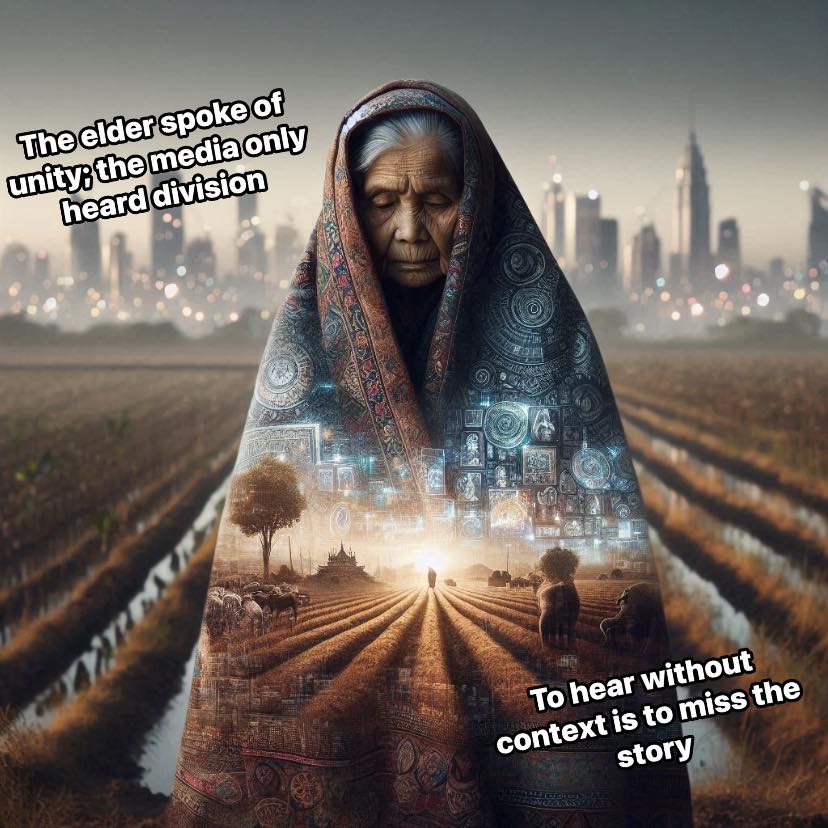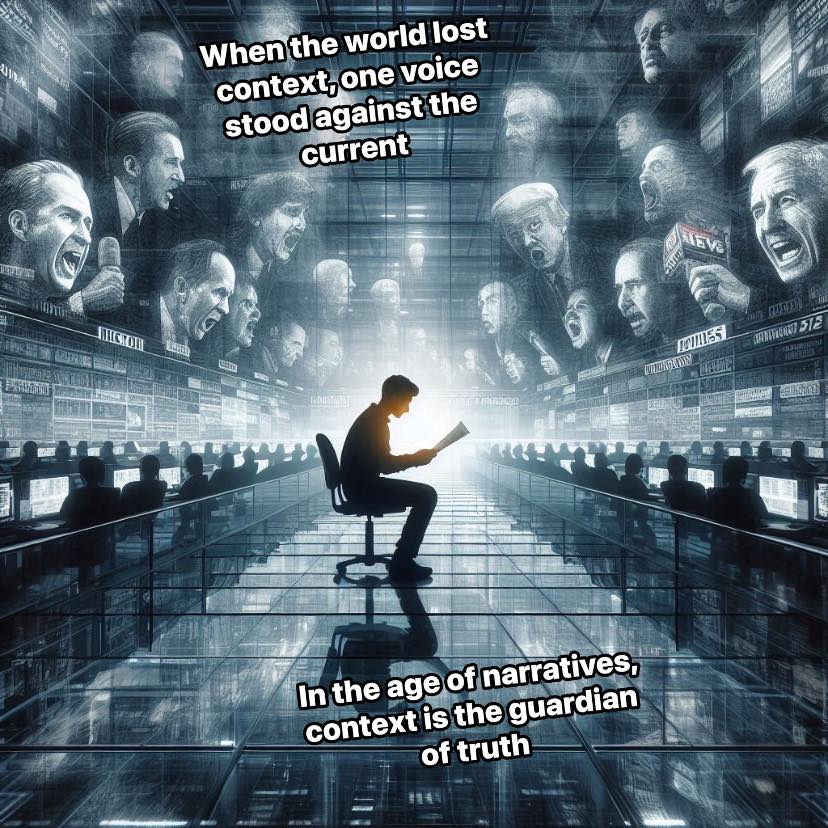
In a city of glass towers and relentless screens, there thrived a media empire known as The Narrative. This entity wasn’t a person but a force—a construct of people, profits, and pulsing algorithms that shaped the daily stories filling every phone, tablet, and television. The Narrative held the power to spin an event into whatever it chose, swaying the views of millions with its carefully crafted words, soundbites, and polished images.
One day, a rare and powerful event occurred in a quiet town on the outskirts. A gathering of world leaders, activists, and scholars had assembled to discuss a topic often ignored: the unintended consequences of global policies on small, vulnerable communities. A respected elder, one who had lived through decades of change, had been invited to speak. Her message was about resilience, unity, and the need for humanity to consider the full context of every action taken by those in power.
But The Narrative wasn’t interested in the elder’s message of unity or her insistence on understanding each action’s long-term impact. Instead, it had a different agenda. That evening, as the media reported on the gathering, the elder’s wise words were sliced into pieces, edited into soundbites that stripped her speech of its heart and her message of its intent.
Instead of sharing her stories of resilience and unity, The Narrative focused on one line: a critique she made about certain policies, spoken with deep sorrow. They twisted her words to sound angry and bitter, broadcasting them under the headline: “Elder Blames Nations for Economic Collapse.” Every network, every screen, and every platform echoed the same message. Her wisdom, her context, her years of seeing through time’s cycles—all erased in seconds.
As days went on, viewers took to the internet, debating fiercely over what she had said. Angry voices condemned her, accusing her of spreading divisive ideas. Commentators debated her “anger,” while politicians distanced themselves, some even calling her “out of touch.” The media storm drowned out the elder’s true voice, burying her message in a sea of misunderstanding.
But deep in the heart of The Narrative’s headquarters, a group of young journalists watched the coverage with unease. They knew that her words had been twisted, her intent misrepresented. These journalists had gone to the event, listened to her, and had heard the raw truth that had been buried beneath the polished, media-made “truth.”
One night, after days of watching the elder’s message be lost to distortion, these journalists made a choice. They decided to restore her context and, by extension, the truth. They crafted an article that replayed her words as they were spoken—her emphasis on resilience, her stories of past challenges overcome, her plea for those in power to look beyond short-term gains.
To avoid corporate censorship, they quietly released the article through a small, independent outlet. Slowly, people began reading it, sharing it, and realizing the elder’s words had carried an entirely different meaning. They began to see the consequences of letting context slip away, realizing how easily intentions could be reshaped by headlines and half-truths.
The Narrative’s executives were outraged at the independent piece, yet the truth had already taken root, weaving its way through the conversations of those who had read the real story. Other outlets picked up the story, restoring the elder’s voice to its original context. People who had once scorned her message reconsidered, understanding that her warning was a call to deepen their own awareness.
As the truth continued to spread, the public grew disillusioned with the politicians who had so quickly distanced themselves from the elder. Seeing now how they had rushed to judgment, ignoring the elder’s message for the sake of popular opinion, the people felt betrayed. When election season came, they made their voices heard: many of those politicians were voted out, replaced by leaders who pledged to listen fully and think deeply before reacting. The people had chosen representatives who valued understanding over optics, humility over hasty opinions.
The elder, who had watched the saga unfold, felt a quiet peace. Her message, once lost in the noise, had finally been heard. And from that day forward, the people learned to listen with a critical ear, to question the narratives handed to them, and to search for the truth within the context.


